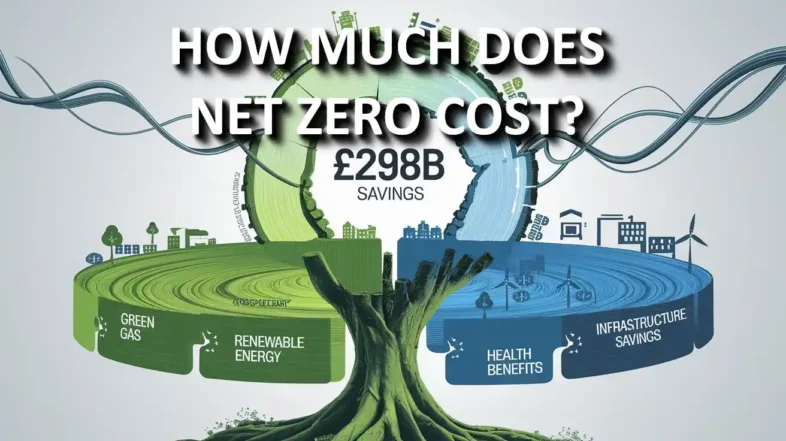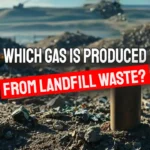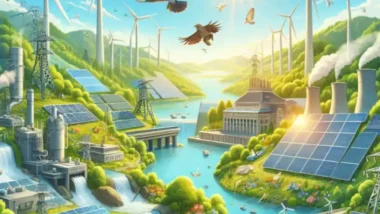Hey there! If you're wondering about the price tag of saving our planet, you're not alone. The question “how much does net zero cost?” has been keeping economists, politicians, and business leaders up at night. But here's some good news right off the bat: reaching net zero might be way cheaper than we originally thought!
Would you believe me if I told you that we could actually save £298 billion in the UK alone? That's not a typo – we're talking about saving money while saving the planet. Let me break down everything you need to know about the costs (and savings!) of reaching net zero emissions.
The Big Numbers: What Are We Really Looking At?
Let's start with the elephant in the room – the initial estimates of net zero costs were pretty scary. McKinsey estimated that the global transition to net zero would require about $9.2 trillion in annual investments until 2050.
Yikes! But hold on, because this isn't the whole story.
The International Renewable Energy Agency (IRENA) has a different take. They suggest that while we need to invest around $5.7 trillion annually until 2030, these investments could:
- Generate $7 trillion in annual benefits
- Create 85 million new jobs by 2030
- Boost global GDP by 2.4% by 2050
Not looking so scary anymore, is it?
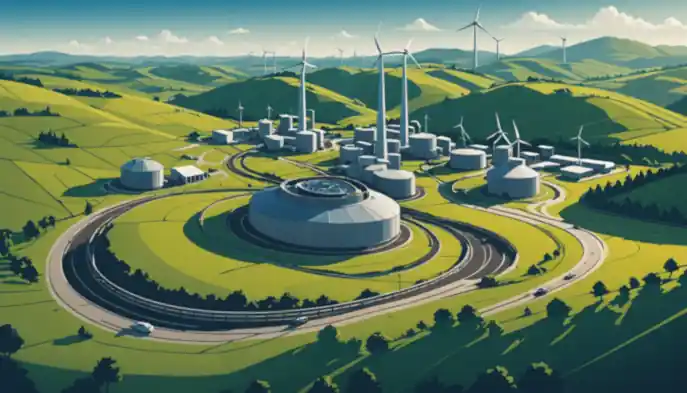
Breaking Down the Costs (And Why They're Lower Than You Think)
Here's where things get interesting! The costs of reaching net zero can be divided into several categories:
1. Energy Sector Transformation
Remember when solar panels cost as much as a small house? Those days are long gone! Check out these amazing price drops:
- Solar power costs have fallen by 89% since 2010
- Wind power costs have dropped by 70% in the same period
- Battery storage costs have plummeted by 87%
2. Building and Infrastructure Updates
This is where a lot of the heavy lifting happens:
- Home insulation and heating upgrades
- Commercial building retrofits
- Industrial facility modifications
But here's the cool part – many of these changes actually save money in the long run through reduced energy costs. The World Green Building Council estimates that green buildings can:
- Reduce operating costs by 8-9%
- Increase building value by 7.5%
- See a return on investment in as little as 7 years
3. Transportation Revolution
Electric vehicles are becoming cheaper every year:
- Battery costs have fallen from $1,200 per kWh in 2010 to around $132 per kWh in 2023
- EVs are expected to reach price parity with conventional cars by 2025
- Maintenance costs are already 50% lower than traditional vehicles
The Green Gas Game-Changer
Now, let me tell you about something super exciting that could change everything – green gas! This might sound a bit technical, but stick with me because it's pretty cool.
Remember that £298 billion in savings I mentioned earlier? That comes from a groundbreaking study showing how smart use of green gas (biogas and biomethane) could dramatically cut the costs of reaching net zero. Here's how:
- It saves each UK household about £415 annually (that's a nice chunk of change!)
- Cuts £22 billion from clean power implementation costs by 2030
- Saves £46.5 billion in wind power spending
- Reduces hydrogen-related expenses by £11.6 billion
But wait, there's more! Other countries are already proving this works:
- Denmark calls it the “Big Green Battery” (cool name, right?)
- Germany has over 9,500 biogas plants up and running
- The US is going all-in with support from the Inflation Reduction Act
Hidden Benefits That Make Net Zero Even Cheaper
Here's something most people don't talk about – the money we SAVE by going net zero:
Health Cost Savings
The World Health Organization estimates that meeting the Paris Agreement goals could save about 1 million lives annually by 2050 through reduced air pollution. That translates to healthcare savings of:
- $54.1 trillion globally between 2020-2050
- Reduced sick days and improved productivity
- Lower healthcare costs for businesses and governments
Climate Disaster Prevention
Remember those crazy weather events we keep seeing? They're expensive! By reaching net zero, we avoid:
- $69 trillion in global economic damages by 2100
- Costly infrastructure repairs from extreme weather
- Agricultural losses from droughts and floods
Many of these were benefits were when ADBA used the same model as the UK government uses to estimate the costs of net zero for the UK, but took a less pessimistic view using International Energy Authority (EIA) data and assuming full development of the anaerobic digestion process in the UK. Read the article about this cost savings report “Net Zero with Huge Net Savings: ADBA Shows Biogas Powering Lower Bills“ here.
Smart Ways to Keep Costs Down
Want to know the really clever part? There are tons of ways to make reaching net zero more affordable:
- Use Existing Infrastructure Smartly
- Convert natural gas pipelines for green gas use
- Upgrade rather than replace electrical grids
- Repurpose industrial facilities
- Focus on Energy Efficiency First
- The cheapest energy is the energy we don't use
- Smart building controls can reduce energy use by 30%
- Modern industrial processes can cut energy needs by 50%
- Phase Changes Strategically
- Target low-hanging fruit first
- Coordinate upgrades with natural replacement cycles
- Take advantage of technological improvements
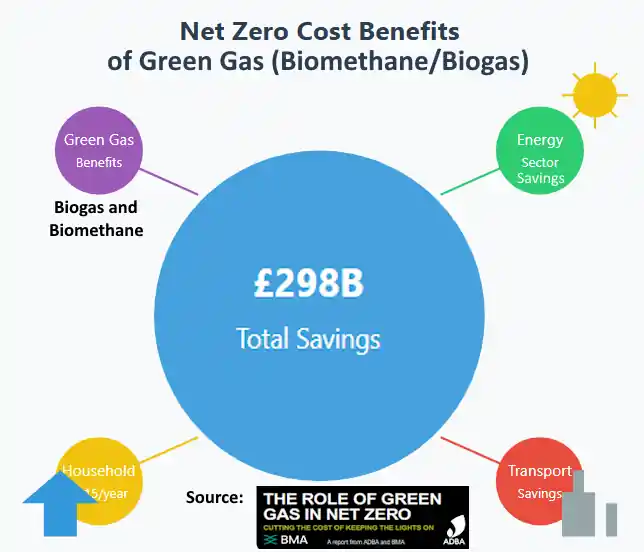
What This Means for Different Groups
For Homeowners
- Energy efficiency improvements can pay for themselves in 5-10 years
- Solar panel costs have dropped 89% since 2010
- Heat pumps can reduce heating costs by 50%
For Businesses
- Green investments often have ROIs of 10-25%
- Energy efficiency can improve profit margins by 2-10%
- Early adopters gain competitive advantages
For Communities
- Local energy generation creates jobs
- Reduced pollution improves public health
- Increased energy independence enhances resilience
Looking to the Future: It Gets Even Better
The really exciting part? The costs keep going down! Here's what's coming:
- Renewable energy prices continue to fall
- New technologies emerge regularly
- Efficiency improvements reduce implementation costs
- Scale advantages kick in as more people adopt
- Innovation drives better solutions
Conclusion: The Bottom Line on Net Zero Costs
So, how much does net zero cost? The answer is way less than we thought! While the upfront investment is significant, the combination of:
- Technological advances
- Smart implementation strategies
- Hidden savings
- Green gas innovation
- Health benefits
- Climate disaster prevention
…means that reaching net zero is not just affordable – it's economically advantageous. The real question isn't “how much does net zero cost?” but rather “can we afford not to do it?”
Remember that £415 annual saving per household I mentioned? That's just the tip of the iceberg. When we factor in all the benefits, reaching net zero looks less like a cost and more like the investment opportunity of the century.
Ready to be part of the solution? Check out our other articles on specific ways you can contribute to (and benefit from) the net zero transition!
Which Gas is Produced from Landfill Waste: The Gas that Trash Produces…
Discover which gas is produced from landfill waste and understand its environmental impact and potential energy use. Explore landfill gas management.
Is Natural Gas Sustainable? Explore the Facts
Discover the truth about the sustainability of natural gas on our blog.
Methane Capture Systems: The Cure For Global Oil Addiction?
The world runs on oil, but this dependency creates serious problems. Air gets polluted, water sources get contaminated, and the climate crisis worsens. People are looking for better ways to reduce harm caused by our “oil addiction.” Methane capture systems might be a solution. These systems trap harmful gas released during oil and gas production. […]
Integration of Biogas Systems into the Energy System
Key Takeaways Biogas systems can significantly reduce reliance on fossil fuels by providing a renewable energy source. They play a crucial role in mitigating greenhouse gas emissions, helping combat climate change. Biogas systems offer scalable energy solutions tailored to local needs, particularly in rural areas. Integrating biogas into existing energy grids can enhance grid stability […]

